Selling a home in Utah involves various expenses, including closing costs. These costs can significantly impact your bottom line, so it’s essential to understand what they entail and how to manage them effectively. In this article, we will explore the average closing costs for sellers in Utah, break down the different components, discuss factors that influence these costs, and provide tips on how to reduce them.
Understanding Closing Costs
Closing costs refer to the fees and expenses associated with finalizing a real estate transaction. It is the financial aspect that sellers and buyers need to account for when transferring ownership of property. While both parties bear closing costs, in this article, we will focus on the costs sellers typically incur.
When it comes to closing costs, it’s important to note that they can vary depending on the location of the property and the specific details of the transaction. Factors such as the property’s value, the type of mortgage, and local regulations can all influence the total amount of closing costs. Sellers should be prepared for these costs to fluctuate and budget accordingly.
Definition of Closing Costs
Closing costs encompass a wide range of expenses, including fees for various services and taxes. These costs cover the work done by professionals involved in the transaction, such as real estate agents, title companies, and lenders. They also include expenses associated with the transfer of ownership, such as recording fees and taxes.
It’s worth mentioning that some closing costs are negotiable, while others are typically paid by either the buyer or the seller. Understanding which costs are negotiable can help sellers save money during the closing process. Working closely with a knowledgeable real estate agent can provide sellers with valuable insights into which costs can be potentially reduced or shared.
Importance of Closing Costs in Real Estate Transactions
Understanding closing costs is crucial for sellers as they directly affect the net proceeds from the sale of a property. By having a clear understanding of these costs, sellers can accurately estimate their expenses and plan accordingly. Additionally, being knowledgeable about closing costs allows sellers to negotiate more effectively with potential buyers.
Sellers should be aware that certain costs, such as property taxes and homeowner association fees, may need to be prorated between the buyer and seller, depending on the closing date. These prorations ensure that each party pays their fair share of expenses related to the property for the time they owned it. It’s essential for sellers to review these prorations carefully to avoid any discrepancies or unexpected financial obligations after the sale.
Breakdown of Average Closing Costs in Utah
The average closing costs for sellers in Utah can vary depending on various factors, including the sale price of the property. Below are some of the typical components that contribute to the overall closing costs.
Real Estate Agent Commissions
One significant expense for sellers is the commission paid to real estate agents. In Utah, the customary commission rate is usually around 3% to 6% of the final sale price. The commission covers the services provided by the listing agent and the buyer’s agent involved in the transaction.
Real estate agents play a crucial role in the selling process. They help market the property, negotiate offers, and guide sellers through the complexities of the transaction. Their expertise and knowledge of the local market can be invaluable in ensuring a smooth and successful sale. While the commission may seem like a significant cost, it is an investment in the expertise and support provided by these professionals.
Title Search Fees
Title search fees are another essential aspect of closing costs. These fees cover the cost of investigating the property’s title history to ensure that it is free of any liens or encumbrances. In Utah, title search fees can range from a few hundred to over a thousand dollars, depending on the complexity of the property’s title.
Performing a thorough title search is crucial to protect both the buyer and the seller. It helps uncover any potential issues or claims on the property that could affect the sale. By investing in a comprehensive title search, sellers can provide buyers with peace of mind and ensure a smooth transfer of ownership.
Escrow Fees
Escrow fees are charges for the services provided by an escrow company. The escrow company acts as a neutral party that holds and disburses funds during the transaction. In Utah, escrow fees typically range from $300 to $600.
Having an escrow company involved in the closing process adds an extra layer of security and efficiency. They ensure that all funds are handled properly and that both parties fulfill their obligations before the transaction is completed. The fees associated with escrow services are a small price to pay for the peace of mind and protection they offer.
Transfer Taxes
Transfer taxes are fees imposed by the state or local government when transferring ownership of a property. Utah imposes a 0.0022% transfer tax on the sale price of residential properties.
For example, if the property sells for $300,000, the transfer tax would amount to $660.
Transfer taxes contribute to the state’s revenue and help fund various public services and infrastructure projects. While they may seem like an additional financial burden, it is important to remember that these taxes play a vital role in maintaining and improving the communities we live in.

Factors Influencing Closing Costs in Utah
Several factors can influence the closing costs sellers incur in Utah. Understanding these factors can help sellers make informed decisions and potentially reduce their expenses.
Utah, known for its stunning landscapes and vibrant cities, offers a diverse real estate market with varying closing costs. From the picturesque mountain towns like Park City to the bustling urban areas of Salt Lake City, each location in Utah presents unique considerations for sellers when it comes to closing costs.
Property Location
The location of the property can impact closing costs. Different regions in Utah may have different tax rates, fees, and regulations. It’s essential for sellers to be aware of any location-specific costs that may affect their closing expenses.
In addition to tax rates and fees, the proximity to amenities such as schools, parks, and shopping centers can also play a role in closing costs. Properties located in highly sought-after neighborhoods may command higher closing costs due to increased demand and competition among buyers.
Home Price and Loan Amount
The sale price of the home and the remaining loan amount, if applicable, can also influence closing costs. Higher-priced homes generally incur higher closing costs. Additionally, if there is an outstanding mortgage on the property, sellers may need to pay off the remaining loan balance at closing.
The condition of the property and any necessary repairs or renovations can impact closing costs. Sellers looking to maximize their profits may choose to invest in home improvements to increase the value of their property and potentially offset some of the closing costs.
Negotiations Between Buyer and Seller
The negotiations between the buyer and seller can impact the distribution of closing costs. While certain costs are typically borne by the seller, it is possible to negotiate with the buyer to share some of these expenses. This negotiation can help alleviate the seller’s financial burden.
Effective communication and a willingness to compromise during the negotiation process can lead to a mutually beneficial agreement for both parties.
Sellers should carefully review the terms of the contract and consult with real estate professionals to navigate the complexities of closing costs negotiation in Utah’s dynamic market.
Ways to Reduce Closing Costs in Utah
While closing costs are inevitable, sellers in Utah can take several steps to reduce their financial impact and maximize their net proceeds.
Shopping Around for Services
One effective way to reduce closing costs is to shop around for various services involved in the transaction. Requesting multiple quotes from real estate agents, title companies, and other professionals can help sellers compare costs and choose the most competitive offers.
For example, when seeking quotes from real estate agents, sellers can inquire about their commission rates and any additional fees they may charge. By comparing these rates and fees, sellers can identify agents who offer competitive pricing, ultimately reducing their closing costs.
Similarly, when obtaining quotes from title companies, sellers can inquire about any discounts or package deals they may offer. Some title companies may provide discounted rates for combined services such as title insurance and escrow services. By exploring these options, sellers can potentially save a significant amount of money on their closing costs.
Negotiating with the Buyer
As mentioned earlier, negotiating with the buyer can yield favorable results. Sellers can discuss sharing specific costs or requesting the buyer to cover certain expenses. Open communication and flexibility can make a significant difference in reducing closing costs.
For instance, sellers can negotiate with the buyer to split the cost of certain fees, such as the appraisal or inspection fees. By sharing these expenses, sellers can alleviate some of the financial burden associated with closing costs.
In addition, sellers can request the buyer to cover specific expenses, such as the cost of the home warranty or the transfer taxes. By clearly communicating their preferences and discussing these matters with the buyer, sellers can potentially reduce their closing costs and increase their net proceeds.
Timing Your Sale
Timing can be crucial when planning to sell a property in Utah. By strategically listing the property, sellers can attract motivated buyers who may be more willing to cover additional costs. Furthermore, sellers can plan their transactions during periods when lenders and other service providers offer discounts or promotions.
For example, sellers can consider listing their property during the spring or summer months, when the real estate market tends to be more active. During these periods, there is often increased competition among buyers, which may lead to higher offers and a greater likelihood of buyers being willing to cover additional expenses.
Additionally, sellers can keep an eye out for any promotional offers or discounts offered by lenders or service providers. For instance, some lenders may offer reduced closing costs or discounted interest rates for a limited time. By taking advantage of these opportunities, sellers can potentially save a significant amount of money on their closing costs.
Conclusion
Understanding the average closing costs for sellers in Utah is essential for a successful real estate transaction. By familiarizing themselves with the various components that contribute to closing costs, sellers can make informed decisions and potentially reduce their expenses.
Considering the factors that influence closing costs and implementing strategies to minimize them can significantly impact sellers’ net proceeds. By following these tips and exploring cost-saving opportunities, sellers can navigate the closing process more effectively and achieve their desired financial outcomes.






